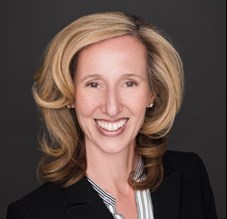For the second year, FRA and RISE will join forces to produce a live-streaming virtual event August 24-25 to connect health care service providers, the investment community, and leaders in the health care industry to cultivate the business partnerships needed to foster change and achieve positive financial returns. Ahead of this year’s event, Alison Rein, vice president, health and human services, Quantified Ventures, who is a presenter at this year’s summit, shared with FRA an inside look at how the outcomes-based capital firm connects organizations with innovative program models in need of capital with the right investors.
This year’s Health Care Investing Summit is a can’t-miss event for emerging health care service providers and health care investors who want to be a part of the drive toward doing well by doing good. With unmatched industry intelligence and ample networking opportunities, attendees will gain the tools and strategies needed to capitalize on the shifting health care landscape.

 In recognition of the surplus of available capital, combined with the lack of opportunities to tie investments to achievement of social impact, Quantified Ventures facilitates connections between people with innovative ideas who can drive outcomes and organizations that should fund those outcomes but aren’t currently doing so, explained Rein, pictured right. The Health and Human Services practice, which is one of four practice areas within the firm, primarily focuses on bringing program models and interventions to life that address health-related social needs, or social determinants of health (SDoH). According to Rein, these social determinants drive individual and community level outcomes but don’t have adequate structures for sustainable financing in the U.S.
In recognition of the surplus of available capital, combined with the lack of opportunities to tie investments to achievement of social impact, Quantified Ventures facilitates connections between people with innovative ideas who can drive outcomes and organizations that should fund those outcomes but aren’t currently doing so, explained Rein, pictured right. The Health and Human Services practice, which is one of four practice areas within the firm, primarily focuses on bringing program models and interventions to life that address health-related social needs, or social determinants of health (SDoH). According to Rein, these social determinants drive individual and community level outcomes but don’t have adequate structures for sustainable financing in the U.S.
“We have this massively expensive and underperforming health care system that is driving upwards of 20 percent of our GDP, but we spend almost nothing, relatively speaking, on what others refer to as human and social services, or the social safety net, all the other things that effect the conditions in which people live,” she said. “Health care organizations are now being held accountable for health outcomes in a way they’ve never been before. They’re operating increasingly under capitated payment arrangements, and they see the need to do better and deliver more for the people they serve.”
While there’s an increased acknowledgement of the imbalance in spending and a desire to address SDoH, human and social services are not typically within a health care organizations’ bailiwick, according to Rein. She explained that Quantified Ventures helps to identify community-based organizations that can partner effectively with health care and use external capital to build their capacity to engage in value-based payment arrangements with health care companies.
During the Health Care Investing Summit, Rein, her colleague, Kyle Flick, senior associate, and Abbie Gilbert, associate director, office of health affairs and advocacy, Humana, will share a recent case study in which Quantified Ventures and Humana collaborated to expand a unique program model that aims to address substance use disorder among pregnant women. The program, which is operated by Volunteers of America in several markets, provides holistic treatment for pregnant and parenting mothers and their other children. Because it serves mothers and their existing children, the program does not require caregivers to choose between treatment and maintaining custody of their children.
Volunteers of America’s program model is both intensive and effective, and thus expensive, said Rein, noting that in the best-case scenario, Medicaid reimbursement only covers roughly 70 percent of the total cost of running the program. In some states, Medicaid reimbursement is far lower covering only about 20 percent of total operating costs.
Though the partners seek to deploy the program model in several markets across the country, it’s impossible to scale the program to meet the broader demand and need without a sustainable revenue model. To develop a reliable financial strategy, Humana sought the guidance of Quantified Ventures, which created an outcomes fund that serves as a credit enhancement and takes on downside risk to prevent investors from losing money should the program underperform in its first year, explained Rein.
During their presentation at the summit, Rein and Flick will share an in-depth look at the fund model and where they expect to focus in the next one to two years.
“We are not looking to capitalize and stand-up new companies. Our job is to try to capitalize CBOs—largely nonprofits—to meet the need, quite honestly, being increasingly exerted through closed-loop referral platforms that are capitalized by venture,” said Rein. “All of these organizations are figuring out how to refer people to services, but there’s nobody working to capitalize the organizations receiving those referrals.”
Rein, Flick, and Gilbert will present the session, Case Study: Health Outcomes Fund Focused on Programs for Pregnant Women with Substance Use Disorder, on Tuesday, August 24 at 2:45 p.m. EST. To learn more about The Health Care Investing Summit, including the full agenda, list of speakers, and registration information, click here.

